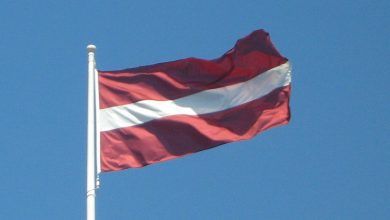The Rise and Fall of Pedro Sánchez in Spanish Politics

Holding a general election was one of PM Sánchez’s pledges just before being sworn into office, which begs the question: how can a politician promise an election that will bring their term up in the air even before taking office?
The socialist Pedro Sánchez (PSOE, S&D) is exceptional in many ways. Not only is he the first Spanish PM who is not a member of the Spanish Parliament (Cortes Generales), but he is also the only one so far who has made it to the executive by means of a motion of no confidence.
The Spanish Constitution contemplates motions of no confidence as a procedure for the lower house to ask for the cabinet’s responsibility – i.e. to vote them out of office. However, this requires a majority of the house not only against a sitting PM but also for a replacement for the incumbent. Parties and MPs do not find it easy to change their minds on who they want to run the administration, so such an exceptional event may only happen after quite exceptional circumstances.
The origins of such a perfect political momentum trace back to Rajoy’s tenure. This article will attempt to capture the salient events which have brought Sánchez to the executive.
The first Rayoy government
Mariano Rajoy, Sánchez’s predecesor in Moncloa Palace, took office in late 2011 after his party, the People’s Party (PP, EPP), won a majority in the last bipartisan election to this date. Back then, only a few minor parties -most of them regionalist – held seats that were not under PP or PSOE control, amounting to barely one seventh of the total seats.
In most parliamentary regimes, the Prime Minister must win a motion of confidence in order to take office. In the case of Spain, they are sworn in if they win a majority in the first ballot or a plurality in the second ballot, which takes place two days after the first ballot fails. If both ballots fail, MPs have two months to find a new Prime Minister, or Parliament is dissolved and another election is called.
His first term in office proved to be an unpopular one. Early in his tenure, Rajoy’s credibility was severely damaged by a number of corruption scandals affecting prominent People’s Party figures, the most notable of them receiving the name of Gürtel case. However, in this initial period, nothing had been proven in court and the political momentum to oust Rajoy simply was not strong enough.
On top of that, Rajoy was seen with animosity by a number of Spaniards, since his government’s management of the Euro crisis saw poverty and unemployment skyrocket. It was indeed as a reaction to his administration’s austerity that a new left-wing party, Podemos (GUE/NGL) was born three months before the 2014 European elections and polled at 8% on a hard-left Eurosceptic anti-austerity and anti-corruption platform. A new centre-right party, Ciudadanos (ALDE), also emerged in the mainstream in 2014, in response to this perceived maladministration.
The 2015-16 political crisis
Due to this discontent, the general elections in December 2015 returned a hung parliament with no chance of a governing coalition being formed. A lot of parties were however united in their common dislike of Rajoy’s administration. Consequently, Pedro Sánchez sealed a deal with Ciudadanos aimed at forming a coalition government, but it failed to pass secure the lawmakers’ confidence.

Given these results, Rajoy remained in power until a fresh election was automatically called, as Congress had failed to provide Spain with a new Prime Minister.
The June 2016 election saw Rajoy’s PP make gains in terms of popular approval at the expenses of PSOE, compared to the election barely half a year previous. Despite this, it still didn’t have the numbers to govern alone. Hence, Rajoy attempted to strike a deal with the centre-right Ciudadanos, as Sánchez had done. This deal again fell short of a confidence majority when it was put to Congress for the first confidence ballot.

The date of a third general election in a row was looming. The polls were signalling a bad turn for PSOE – already on a historic low of 85 seats – and the party’s patience with their leader, Pedro Sánchez, was wearing thin. After a traumatic and divisive party assembly, it was decided that the socialist MPs would abstain in an eventual second confidence ballot with Rajoy as candidate, thus facilitating Rajoy’s appointment as PM.
Minutes after the public knew of this decision, Sánchez resigned as party leader and quit his seat in Parliament. Fifteen fellow socialist lawmakers defied the whip and voted against Rajoy, but it did not prevent the PP candidate from securing a fresh mandate for a second term in office.

The vote of no confidence
And so, 2016 saw Mariano Rajoy emerge from the political crisis with a second term in office, and Pedro Sánchez neither the PSOE leader nor a lawmaker. But this didn’t mean that Rajoy had a strong majority in his support.
In April 2017, Podemos tabled a first motion of no confidence against him, but it was heavily defeated as not even PSOE backed this move, being as they were yet to elect a new leader and significant policy changes could not be ruled out. One month later, Pedro Sánchez once again won the PSOE’s leadership race, and Podemos encouraged him from day one to try to assemble a majority to force Rajoy out. All they needed was an event with enough magnitude to turn the noes to Rajoy into ayes for Sánchez.
As it is the case in Germany or Belgium, votes of no confidence must be constructive in Spain. This means that the house must not only vote that they have no longer confidence in the sitting executive but they must, at the same time, vote that an alternative person has the house’s confidence to become PM. Until this point, Rajoy’s cabinet had remained in power because there was no other candidate enjoying the support of the majority of the Congress.
In May 2018, the Gürtel case received a sentence ruling that PP had profited from an illegal kickbacks-for-contracts scheme involving many of Rajoy’s former party collaborators. According to the sentence, the party helped establish since its foundation in 1989 ‘a genuine and effective system of institutional corruption through the manipulation of central, autonomous, and local public procurement’ and that Rajoy had failed to be ‘truthful’ when he testified as a witness during the trial. That’s when opposition parties agreed that Rajoy had to go.
On the 25th of May, PSOE tabled a motion of no confidence in Rajoy’s government, with their leader, Pedro Sánchez, as alternate candidate. The vote took place on the 1st of June, and narrowly passed with 180 votes in favour (the opposition), 169 against (PP, Ciudadanos, and local affine parties), and one abstention (Canarian Coalition). Pedro Sánchez was the new Prime Minister of Spain.

Sánchez and his premiership
Unfortunately, the new prime minister’s majority faded as he took office. The only thing his backers had in common was that all of them wanted Rajoy out and had no excuse to oppose the motion. So, Sánchez inherited Rajoy’s problems and was still short of a majority to pass laws, most notably the budget.
And it was not only the budget, but also Catalonia what has been making Pedro Sánchez’s agenda during his premiership. On Catalonia, there were conversations between his government departments and those of the Catalan regional government, but these were bounded to stall as one of the government’s red lines was not to grant a referendum on independence. This alienated the support of the Catalan parties, leaving Sánchez short of the majority any law requires to be passed.
These problems came as a surprise to no one, and it was perhaps due to their anticipation that Pedro Sánchez’s tenure has been characterised by gestures and the use of the executive prerogative to shape the way legislation is implemented rather than by law reforms. For the first time in history there have been more female than male ministers sitting in the cabinet room, ministerial nominations fell upon two openly gay men, and up to a third of the ministers are not affiliated to any political party. This is a notable feat in a country where elections run on closed-list systems and party apparatus have great control of candidacies.
In February 2019, a majority in Congress voted a key budget measure down, thus leaving Sánchez with no practical support to carry on without calling a general election, which is due to happen this Sunday.





